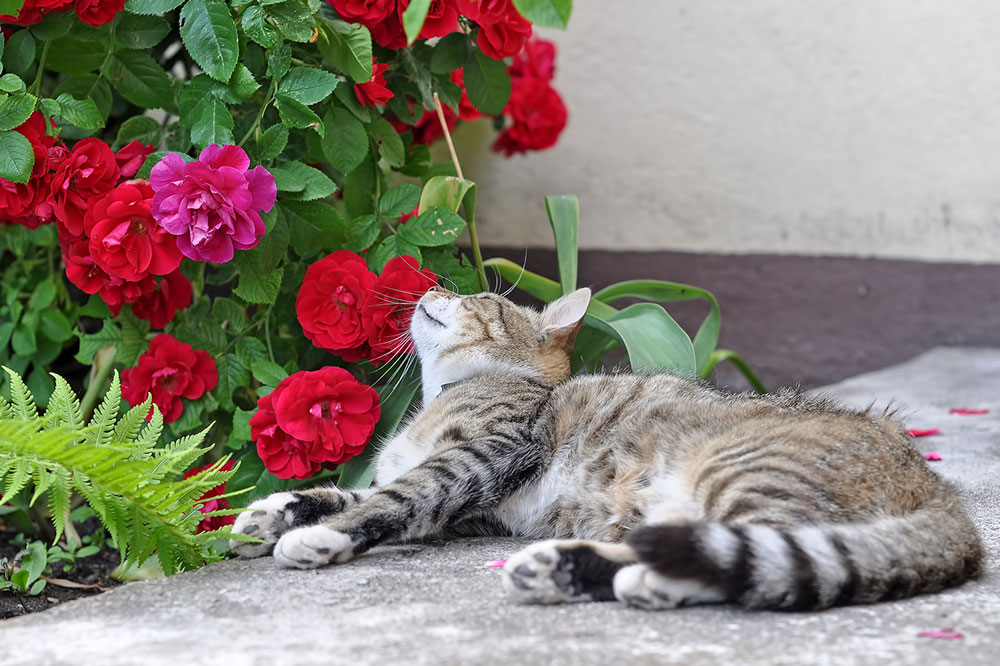
7 Toxic House Plants for Cats
Your pretty pet cat and many of your beautiful houseplants don’t go well together. The lively green and flowering plants in your house have an aesthetic appeal and have health benefits for you, but many are poisonous for your cat. There is a list of houseplants that are toxic to cats. You will have to consult Pet Poison Helpline or your vet about the plants’ toxicity levels and how they can affect your cat. You have to watch out for the symptoms of poisoning in your cat, which vary from mild to severe clinical symptoms that need medication.
Listed below are the poisonous houseplants that must be kept avoided
Many common houseplants have been reported as being toxic to cats. The lilies, vines, crotons, aloe, begonias, philodendrons, and azaleas are not tolerated by your cat’s sensitive respiratory and digestive system. American Society for Prevention of Cruelty to Animals (ASPCA) has listed the plants that are toxic to pets in terms of its severity. So, avoid the plants that can harm your kitten inside the house and in the yard. Some of the common ones are:
Aloe
Aloe is an easy-to-grow house plant that comes in many varieties. It is popular because of its medicinal and cosmetic properties. But aloe is toxic to cats. Topical application has not been reported as harmful, but chewing on them irritates your cat’s digestive system, inducing vomiting, diarrhea, and tremors.
Lily
Lilies come in many varieties and colors. These flowers which come in white, pink, yellow, and orange liven up our homes. All varieties of lilies are toxic, but Easter lilies come under the severely toxic category of houseplants. They cause vomiting, drooling, and loss of appetite. Kidney failure could happen, and without immediate medical intervention, it is life-threatening.
Begonia
A houseplant that flourishes in darkness and shade, which tolerates the low light conditions and brightens up the atmosphere. Though they look small, colorful, and harmless, they are acutely toxic to cats. When ingested, they cause burning in the mouth and difficulty in swallowing.
Branching Ivy
It is a plant that is easy to grow with hardly any maintenance and is known to remove toxins from the air. But this air-purifying plant is not well tolerated by your cat. Moderately toxic, it affects your cat’s intestine and breathing.
Catnip
Cats love them, but you can’t let your cat have them as they cause diarrhea and vomiting. Cats may react by getting sedated or stimulated as too much of the plant overstimulates the central nervous system.
Golden Pothos
A very common vine that is very easy to grow indoors and outdoors. Also called as devil’s ivy or taro vine, it is mildly toxic to cats. When cats ingest them, they show oral irritation, burning of the mouth and tongue, excessive drooling, vomiting, and breathing difficulty.
Jade plant
A cheery succulent that will grow even if not cared for or watered enough. But this agreeable houseplant is listed as moderately toxic. Signs of poisoning include vomiting, lethargy, tremors, and an elevated heart rate.


